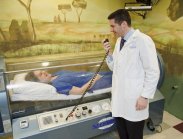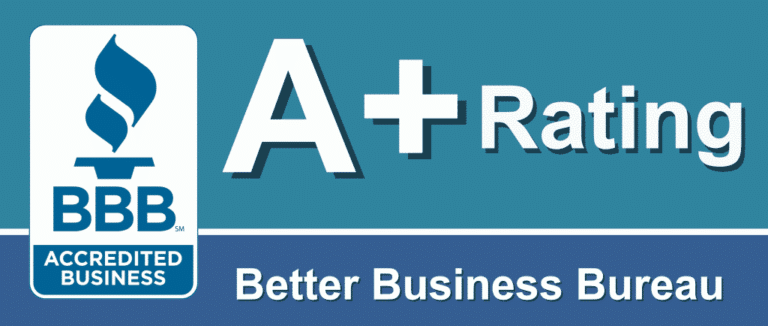Picture this: Your child comes home from school or sports practice with a bump on his head. His pupils are dilated, and he says he feels sick. After a visit to the doctor, you get the diagnosis: It’s a concussion. “No physical activity, no TV, no video games, and no reading. Just rest your body and your brain for a few days” is the “prescription” your child receives.
Yes, this is standard post-concussion advice—but often, the “wait and rest” approach is not enough. When not treated properly, concussions (which are a type of traumatic brain injury, or TBI) can have serious consequences that affect children for the rest of their lives. If you think your child may have suffered a concussion, you need to insist on more aggressive action.
The odds are good that at some point, you’ll be faced with this decision. A football tackle, being hit with a baseball or softball, and even heading a soccer ball can result in head injuries. But youngsters hardly need to put on a uniform to become concussed—falls, everyday play, and automobile accidents can have the same outcome.
As kids grow up, their risk of concussion is significant. The Brain Injury Association of America reports that each year, an average of 62,000 children are hospitalized as a result of brain injuries; 564,000 more are seen in hospital ERs and released. (This number does not include children who are seen by pediatricians and primary care providers, or who don’t receive medical attention at all after a possible head injury.)
What’s more, the number of concussed children and teens is on the rise. According to the CDC, between 2001 to 2009, the rate of sports- and recreation-related ER visits that resulted in a diagnosis of concussion or TBI went up 57 percent for children under 19.
It’s crucial for parents, coaches, teachers, and anyone else who supervises children to be familiar with the symptoms and effects of concussions, as well as their treatment.
The immediate effects of a concussion can be subtle, or very noticeable. Some of the most common post-concussive symptoms include:
We all know that a concussion is a type of head injury—but it’s more than just a bump or a bruise. Concussions are serious because they are a type of traumatic brain injury (TBI). As the result of a sudden blow, jolt, or change of direction (e.g., whiplash), the brain suddenly shifts within the skull. This can result in torn nerve axons, bruising, and damage to blood vessels. If not treated properly, damage and inflammation can adversely affect brain function, even long after the initial injury.
Multiple concussions are especially damaging. If a child is concussed a second time while a previous brain injury is still healing, she may experience more serious symptoms, a longer recovery time, and even permanent cognitive and neurological damage. Since TBI is not a visible injury, multiple concussions are a major concern. Many children return to sports or other risky activities before they have fully healed. For this reason, it’s crucial for parents and coaches to fully follow doctors’ advice.
Yes—and they’re alarming. Because children’s brains are still growing, they are especially vulnerable to concussions. The damage caused by TBI can impede or impair normal development. Potential long-term effects of childhood concussions include abnormal brain activity that lasts for years, memory problems, attention deficits, difficulty handling anger, language impairment, personality changes, difficulty making decisions, “foggy” thinking, and more.
The bottom line is, a childhood concussion can adversely affect a child’s personal and professional success for the rest of his life.
If your child suffers from a concussion (or one is suspected), you’ll most likely be advised to make sure that she rests physically and mentally for a few days. But once again, don’t stop there. The biggest mistake most parents and coaches make is assuming that everything is okay when a youngster appears to have returned to normal after a few days of downtime. Fortunately, the more we learn about the brain, the better we’re able to treat concussions and prevent negative long-term effects.
The NeuroEdge Brain Performance Center in Fairfield, CT offers a number of cutting-edge diagnostic and treatment options. We will work with you to determine which of the following are best for your child.
Diagnosis
When a child suffers a head injury, schedule an evaluation by a health professional as soon as possible. Besides a thorough physical exam, The NeuroEdge Brain Performance Center uses these tools to diagnose concussions and TBI:
We highly recommend that children and teens get a baseline test (see video) prior to the beginning of their athletic season. Consider getting baseline tests as a team. Inquire about special team testing discounts for both neurocognitive and EEG baselines.
Did you know? Certain genotypes are associated with a greater likelihood of having long-term cognitive issues after TBI. A simple genetic test can help you decide if your child should participate (or continue to participate) in sports or other physical activities.
Treatment
In most cases, the traditional “rest and wait” treatment will resolve the immediate effects of a concussion. But to support recovery and guard against long-term damage, it’s wise to employ more proactive treatments that help the brain heal. The NeuroEdge Brain Performance Center offers the following:
 concentration of 100 percent, the chamber is slowly raised between 1.5 to 2 times the normal atmospheric pressure. This allows more oxygen to enter the bloodstream and cerebral spinal fluid, and where oxygen concentration is increased, inflammation is reduced and healing is enhanced. Research has shown that HBOT dramatically improves both blood flow and function in the brain after injury.
concentration of 100 percent, the chamber is slowly raised between 1.5 to 2 times the normal atmospheric pressure. This allows more oxygen to enter the bloodstream and cerebral spinal fluid, and where oxygen concentration is increased, inflammation is reduced and healing is enhanced. Research has shown that HBOT dramatically improves both blood flow and function in the brain after injury.Contact Us
To make an appointment, please call The NeuroEdge Brain Performance Center at 203-371-8258. We see patients from Fairfield, Westport, Greenwich and surrounding areas.

"*" indicates required fields